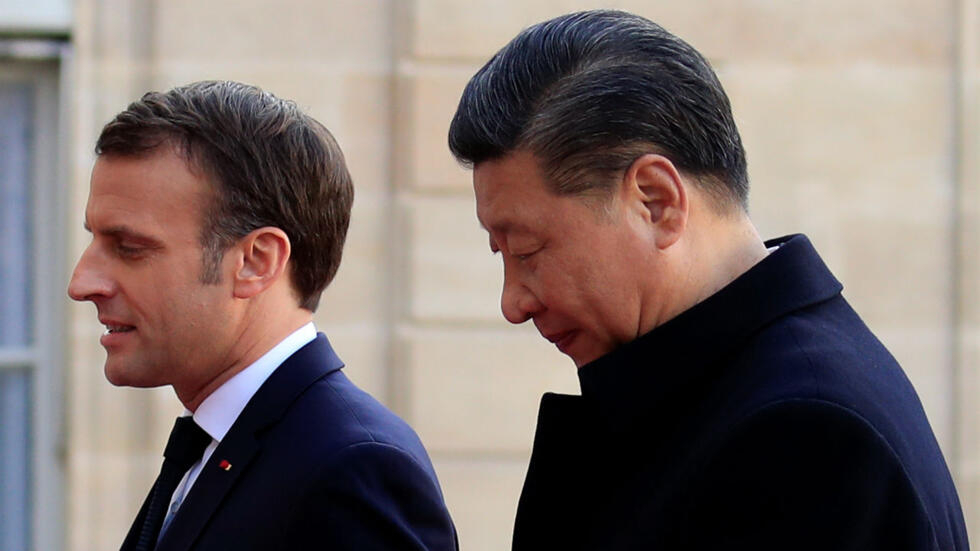Emmanuel Macron emphasized the importance of achieving more balanced trade relations between Europe and China as he began discussions with Xi Jinping in Paris on Monday. Trade, along with the situation in Ukraine, took center stage during the Chinese president’s first visit to Europe in five years.
“The current international situation highlights the necessity of a European-Chinese dialogue more than ever,” Macron stated in his opening remarks at the Élysée Palace, alongside European Commission president Ursula von der Leyen.
“Europe is facing a pivotal moment in its history, which calls for addressing and overcoming structural challenges,” Macron added, underscoring the importance of establishing fair rules for all.
Xi’s visit coincides with a series of EU investigations into Chinese companies for alleged subsidies, including a significant probe into electric vehicles, an industry that France has actively supported by promoting domestic and European manufacturers.
According to Chinese officials, Xi’s primary objective during his six-day European tour, which also includes stops in Serbia and Hungary, is to mitigate the impact of trade tensions. This comes at a time when European leaders hold differing stances toward Beijing.
China’s relationship with Russia amid the ongoing conflict in Ukraine will also be a key topic of discussion.
During his state visit, Xi hinted at the possibility of increased market access for French exports, such as cosmetics and agricultural products, in China.
“We welcome high-quality French agricultural products and cosmetics to the Chinese market to meet the increasing demands of our people for a better quality of life,” Xi wrote in a signed article in Le Figaro, which was republished in English by the People’s Daily.
In his meeting with Macron, Xi emphasized the importance of China and Europe, “as two major powers in the world,” maintaining their partnership and enhancing strategic cooperation.
The EU’s investigations into Chinese products stem from concerns about industrial overcapacity in China potentially leading to dumping, particularly in areas like electric vehicles, batteries, solar panels, and other green energy-related goods.
European cosmetics manufacturers, including prominent French companies, have expressed worries about access to the Chinese market. They argue that new regulations, ranging from animal testing to labeling requirements, are hindering their ability to sell in China.
Chinese authorities refute claims of oversupply in their industries and dismiss Western accusations as protectionist rhetoric. They assert that various initiatives have been introduced to encourage foreign investment.
Von der Leyen, who has advocated for diversifying Europe’s commercial ties with China to reduce risks, emphasized the importance of mutual respect, understanding, and collaboration in addressing global challenges.
Chinese state media extensively covered Xi’s visit to France, as well as his upcoming visits to Serbia and Hungary, countries perceived to be more aligned with Beijing.
Chinese commentators have highlighted Macron’s previous remarks urging Europe to assert its strategic independence and become a “third pole” in global geopolitics, independent of both Beijing and Washington.
Analysts note China’s longstanding efforts to exacerbate divisions between Europe and the US, advocating for European autonomy in strategic matters, particularly concerning issues like the conflict in Ukraine.















































